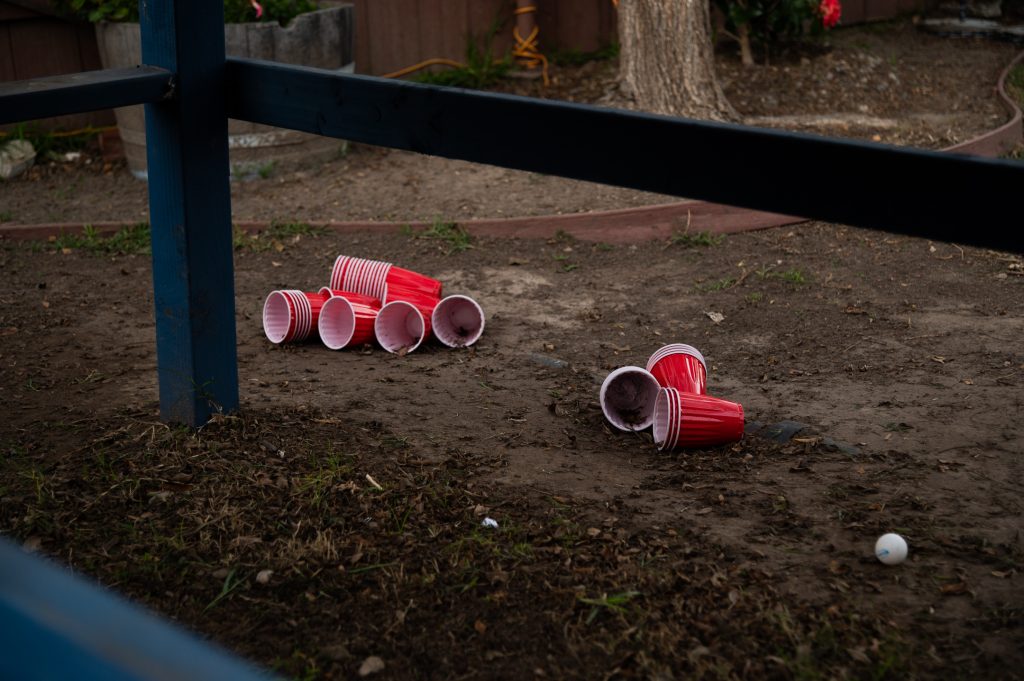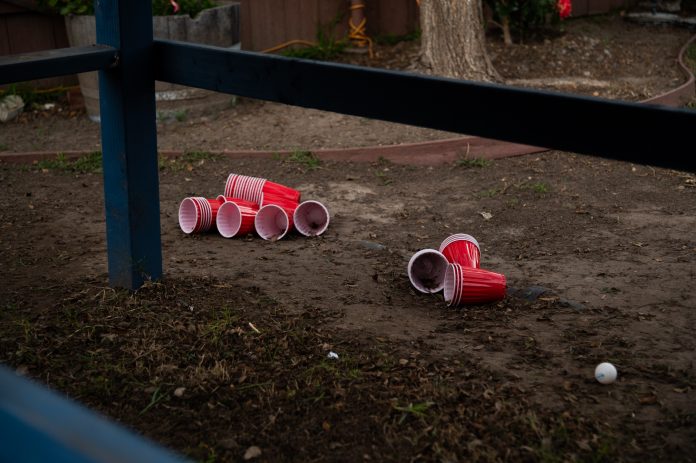Alexandra Wishowski
Isla Vista Beat Reporter

With declining COVID-19 case numbers, Santa Barbara County has joined the majority of California’s counties in moving from the red tier of California’s Blueprint for a Safer Economy to the orange tier, allowing businesses such as restaurants and movie theaters to operate indoors at a 50 percent capacity. Additionally, all residents 16 years of age and older are now eligible to receive a COVID-19 vaccine.
This comes after the county spent a large part of the COVID-19 lockdown in the most restrictive purple tier, with intensive care unit availability below 15 percent. The county has also had 33,926 positive cases and 445 deaths as indicated by the Santa Barbara County Public Health Department’s (SBCPHD) status report on April 20.
Despite alarming rises in case numbers, students at UC Santa Barbara (UCSB) continued to throw parties during the height of the COVID-19 pandemic. More recently, partygoers have become even less concerned about safety with the vaccine no longer restricted to certain groups of individuals.
Mikah Jackson, a third-year anthropology major, shared her frustrations upon first finding out that large gatherings were being held in Isla Vista: “Honestly, I thought it was so embarrassing for these people.”
“Also, I think it showed people’s true colors,” she continued. “Especially those who just brazenly posted on social media for everyone to see while numbers were still rising.”
In regards to the increase in partying seen during the first weekend of spring quarter — known as Deltopia — Jackson still finds it frustrating since the county has not yet reached herd immunity, which will be accomplished once 80 to 90 percent of the population has received the vaccine.
Currently, only 23 percent of the county’s residents have been fully vaccinated and approximately half of its residents have received their first dose, according to a KCSB News COVID-19 newsletter emailed on April 21.
Kimberly Duarte, a fourth-year English major, echoed similar sentiments about seeing more frequent partying in light of COVID-19 vaccine availability: “I continue to think that it’s pretty irresponsible and selfish to be throwing and attending parties at the moment.”
“We should have stuck to small and intimate gatherings,” she added. While many activities are now safe to participate in with full immunization, the Centers for Disease Control and Prevention (CDC) strongly advises against medium to large indoor gatherings.
Furthermore, an individual is only considered fully vaccinated two weeks after their second dose of Pfizer or Moderna, or two weeks after the single-dose Johnson & Johnson vaccine. The vaccines are also not 100 percent effective, and experts are still determining if vaccinated individuals are able to transmit the virus despite not developing disease.
“I don’t even think the people that were throwing parties before they were allowed to get the vaccine are rushing to get it now that it’s available,” added Duarte in regards to the careless behavior she has witnessed.
“I don’t even think the people that were throwing parties before they were allowed to get the vaccine are rushing to get it now that it’s available,” added Duarte in regards to the careless behavior she has witnessed. “
Another concern for both students is that those who continued partying despite increasing case numbers downplayed the severity of the virus to the point that they are not waiting to become fully immune if they have received a COVID-19 vaccine.
“It’s really deceitful to use the vaccine as an excuse to party now when your actions have been putting people’s lives in danger the whole time,” said Jackson. “Like, really? There are people dying and you can’t stop partying?”
Many who have attended parties at UCSB have also justified their actions by claiming immunity after recovering from a COVID-19 infection. While antibodies may provide protection from the virus, it is unknown how long these antibodies last and how much protection they provide.
A study of 156 healthcare workers with COVID-19 antibodies found that 94 percent of participants declined in antibodies after 60 days and 28 percent experienced a significant drop.
Because of this, the CDC still recommends that individuals who have recovered from COVID-19 still get vaccinated in order to be fully protected from all strains of the virus. They may only need a single dose.
The COVID-19 vaccine is free of cost and available to everyone regardless of health insurance coverage or immigration status. Individuals seeking further information and appointments may visit the SBCPHD’s COVID-19 Vaccine Information page.











